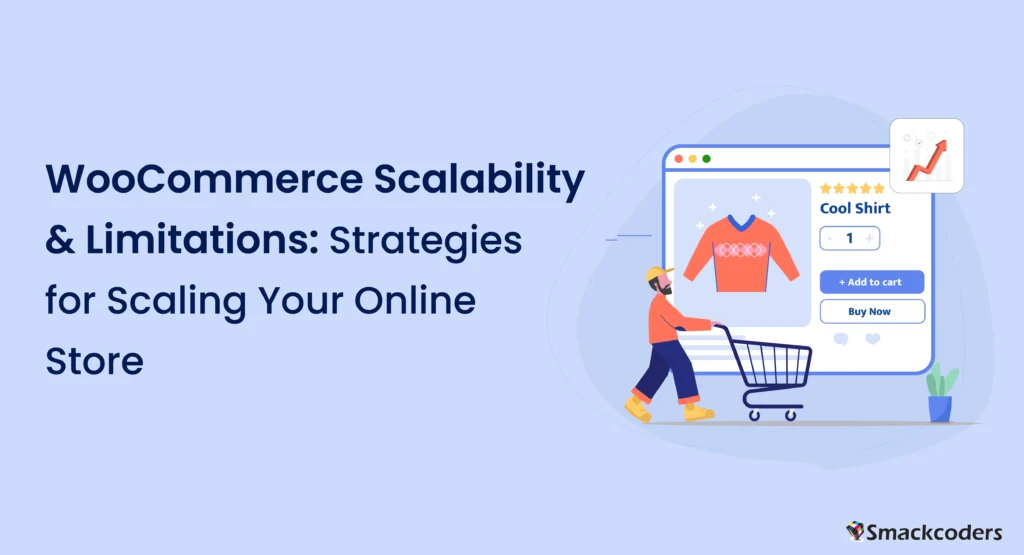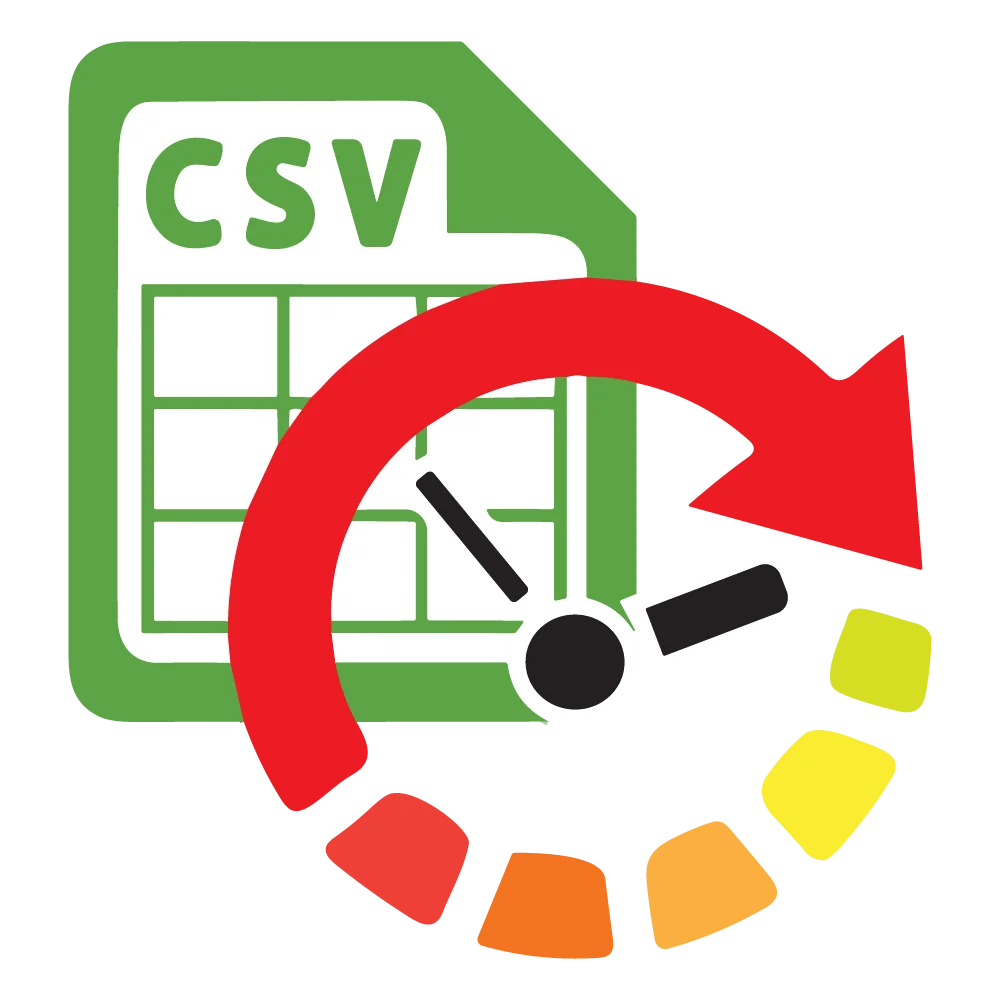
Table of Contents
WooCommerce, the renowned open-source e-commerce platform, has revolutionized the way organizations control their online stores. Built upon WordPress, it has ended up being a go-to solution for entrepreneurs and hooked-up agencies alike, boasting an outstanding 28% marketplace share inside the e-commerce space. As your enterprise grows, scalability will become a paramount difficulty, ensuring your online store can deal with accelerated traffic, orders, and inventory without compromising overall performance or consumer confidence.
In the contemporary, fast-paced digital landscape, the potential to scale your e-commerce operations is crucial for long-term success. A scalable online store no longer only incorporates growth but additionally adapts to fluctuating demand, seasonal peaks, and ever-changing customer expectations. However, like every platform, WooCommerce has its limitations that can hinder scalability if not addressed proactively.
This complete article delves into the scalability of WooCommerce stores while also exploring their inherent barriers. We’ll take a look at techniques to conquer these demanding situations, ensuring your online commercial enterprise remains agile, responsive, and poised for boom. Whether you’re a budding entrepreneur or an established retailer, this post will equip you with precious insights to make informed decisions about your e-commerce platform.
WooCommerce’s reputation stems from its flexibility, cost-effectiveness, and a number of plugins that cater to diverse business wishes. From payment gateways to delivery integrations, WooCommerce empowers savers with a wealth of customization options, enabling them to create a tailor-made purchasing experience for their clients.
How Many Products Can a WooCommerce Store Handle?
When it comes to the scalability of WooCommerce, one of the most frequently asked questions is, “How many products can a WooCommerce store deal with?” The answer, however, is not an easy one-size-fits-all number. The wide variety of products a WooCommerce store can offer depends on different factors, such as server assets, website optimization, and the complexity of your product catalog.
Technically speaking, WooCommerce itself no longer imposes a difficult restriction on the variety of merchandise you could have in your online store. However, as the wide variety of merchandise grows, so does the demand for your server’s sources, consisting of CPU, RAM, and database overall performance. If left unchecked, this multiplied demand can cause gradual web page load times and timeouts, and in the long run, a frustrating consumer will revel in your customers.
To give you a rough idea, a nicely optimized WooCommerce store strolling on an excessive-performance server can, with no trouble, cope with thousands of products and merchandise.
Can WooCommerce stores scale? Yes, But…
A common false impression within the WooCommerce network is that the platform has a strict restriction on the quantity of products a web store can manage. However, this belief fails to capture the true essence of scalability. When it comes to WooCommerce, scalability isn’t about an arbitrary product count but rather approximately delivering continuing overall performance and user enjoyment, regardless of the dimensions of your product catalog.
The true degree of scalability lies in your store’s potential to hold speedy web page load times, ensure clean browsing and checkout reviews, and deal with elevated traffic and order volumes without hiccups. A WooCommerce store with 10,000 merchandise or products, however, has lightning-speedy overall performance that is more scalable than one with 1,000 products but sluggish load instances and frequent timeouts.

WP Ultimate CSV Importer Pro
Get Ultimate CSV/XML Importer to import data on WordPress faster, quicker and safer.
Scalability It’s a continuous process of optimizing your business’s infrastructure, imposing overall performance-improving strategies, and staying ahead of the curve as your commercial enterprise grows. While WooCommerce provides a robust basis, reaching authentic scalability requires a holistic method that addresses capability bottlenecks and leverages first-class practices tailor-made to your precise enterprise desires.
To free up the overall scalability capability of WooCommerce, you’ll want to not forget elements such as server resources, caching mechanisms, database optimization, content delivery networks (CDNs), and cargo-balancing solutions. Additionally, leveraging performance-enhancing plugins, enforcing lazy loading strategies, and optimizing product facts can drastically contribute to an unbroken user experience, despite a great product catalog.
Remember, scalability isn’t a destination but a journey. As your WooCommerce store grows, you may need to constantly screen and optimize its overall performance, ensuring that your customers revel in a fast, responsive, and enjoyable shopping experience, no matter the range of merchandise you offer.
Factors Affecting WooCommerce Scalability
When it comes to scaling your WooCommerce store, several factors can either facilitate or avert its growth capability. Understanding those factors is crucial for proactively addressing capability bottlenecks and imposing techniques that ensure a seamless purchasing experience for your customers while your business expands.
Number of Products:
While WooCommerce does no longer impose a hard limit on the quantity of products you could promote, a larger product catalog can certainly affect overall performance if not controlled successfully. With more products, your website’s database desires to deal with and serve more information or data, potentially leading to slower load times and strained server resources.
Traffic Volume:
The success of your online shop often hinges on its potential to handle high site visitor volumes seamlessly. If your server isn’t always thoroughly optimized or lacks sufficient sources, an inflow of site visitors can quickly crush it, resulting in gradual load times, timeouts, and potentially lost sales.
Plugin Usage:
WooCommerce’s extensibility is one of its biggest strengths, thanks to its considerable ecosystem of plugins. However, it’s critical to take into account the plugins you put in, as some can add unnecessary bloat and sluggish down your shop’s performance. Regularly auditing and removing unused plugins can help preserve gold-standard performance.
Server Configuration:
Your website hosting plan plays an essential role in your website’s scalability. Factors inclusive of server type (shared, VPS, or committed), to-be-had sources (CPU, RAM, garage), and server configurations can substantially impact performance. As your commercial enterprise grows, you may want to upgrade to a stronger web hosting solution or, do not forget, a load-balanced environment.
Product Data Complexity:
The complexity of your product statistics can also affect scalability. Products with tremendous versions, customization options, or excessive-decision pixels require extra sources to show and manipulate. Optimizing product statistics, such as compressing pictures and streamlining variations, can help alleviate stress on your server.
Database Optimization:
WooCommerce is predicated heavily on its database for storing and retrieving product, order, and purchaser information. Proper database optimization, consisting of indexing, partitioning, and efficient question control, can drastically enhance overall performance, particularly as your shop’s data grows.
Theme Optimization:
Your WooCommerce topic plays a crucial role in your store’s typical overall performance. Well-coded, lightweight themes with optimized CSS and JavaScript can contribute to faster load instances and a smoother user experience, while bloated or poorly optimized topics can preclude scalability.
By understanding and effectively managing these factors, you can ensure that your WooCommerce store remains viable, efficient, and able to handle growth, whether it’s increasing traffic, expanding inventory, or incoming orders. Stay updated, monitor the performance of your stores, and implement scalability best practices to future-proof your eCommerce business.

WP Ultimate CSV Importer Pro
Get Ultimate CSV/XML Importer to import data on WordPress faster, quicker and safer.
Ways to scale your WooCommerce store
As your WooCommerce store grows, it becomes increasingly important to introduce powerful ways to manage your growing inventory, improve productivity, and simplify operations. Here are a few confirmed approaches to help you scale your online commercial enterprise seamlessly:
Product management
Use categories and tags. Effectively
Proper categorization and tagging of your products now not only enhances the consumer’s experience but additionally optimizes database queries, leading to quicker load times. Regularly audit and reorganize your product taxonomy to preserve its green shape.
Consider product information management (PIM) systems
For massive and complex product inventories, a devoted PIM system can centralize and streamline the management of product statistics, ensuring consistency and accuracy across your income channels.
Performance Optimization
Choose a Reliable Hosting Plan with Scalability Options
Your hosting answer plays a vital role in your store’s performance. Opt for a reputable company that gives scalable resources, together with CPU, RAM, and garage, to house boom without compromising pace and reliability.
Implement Caching Plugins
Caching plugins, like WP Rocket or W3 Total Cache, can significantly lessen server load and enhance page load instances by serving static versions of your pages and lowering database queries.
Optimize product images for faster loading
High-resolution product images can drastically impact load instances. Implement image optimization techniques, including compression and lazy loading, to ensure an easy browsing experience.
Consider a content delivery network (CDN):
A CDN allows the live content (CSS, JavaScript, images) of your internet site to be delivered to multiple servers around the world, reducing the traffic time on a single geographical basis.
Regularly clean up and optimize your database
Over time, your WooCommerce database can accumulate useless facts, leading to bloat and performance issues. Regularly optimizing and cleaning up your database can help maintain superior overall performance.
Plugin Management
Only use essential plugins
While WooCommerce’s plugin surroundings offer a wealth of capabilities, excessive plugin usage can result in conflicts, bloat, and overall performance degradation. Regularly audit your plugins and deactivate or remove any pointless ones.
Regularly update and maintain plugins
Outdated plugins can pose security dangers and compatibility troubles. Stay on top of plugin updates and ensure they’re compatible with your WooCommerce and WordPress versions.
How the Ultimate CSV Importer Can Manage Your WooCommerce Store
As your product catalog expands, coping with product statistics can turn out to be a daunting mission. The Ultimate CSV Importer gives you a powerful way to streamline your WooCommerce store’s scalability:
Import and Update Single Product and Variable Product Information
Save time and sources through bulk importing product records, such as versions and details, through CSV documents, doing away with the need for guide statistics access.
Export Customer Information and Product Data with Advanced Filters
Easily retrieve and manipulate customer data or precise product statistics with the use of advanced filters, allowing focused moves and efficient data control.
Schedule the product import and export
Automate product updates and information backups by scheduling imports and exports at convenient times, making sure your shop’s data remains updated and conveniently available.
Conclusion
WooCommerce does not put a hard limit on the number of products you can sell. Instead, scalability depends on factors such as server resources, traffic volume, plugin usage, database optimization, and product data complexity.
By taking advantage of these features and using proven strategies, you can unlock the full potential of your WooCommerce store, allowing it to handle ever-expanding products, increased traffic, and the increased customer volume it is addressing without compromising performance or user experience.
Improving product management through the integration of appropriate classification, branding, and potential product information management (PIM) systems can streamline your processes and improve database queries. Performance improvement strategies, such as choosing a reliable hosting plan with scalability options, using caching plugins, optimizing product images, using content delivery networks (CDNs), and maintaining your database regularly, make your store faster and increase response significantly.
Sensible plugin management, which involves applying regular updates only to essential plugins, can prevent conflicts, bloat, and compatability issues, ensuring a smooth and robust platform for development.

WP Ultimate CSV Importer Pro
Get Ultimate CSV/XML Importer to import data on WordPress faster, quicker and safer.
As your WooCommerce store grows, managing your extended product data can be a daunting task. Ultimate CSV Importer emerges as a powerful solution, providing effortless import of its single and variable content through CSV files. Its advanced filtering capabilities enable efficient management of customer information and product information while performing planned import and export operations and data storage.
Manage your WooCommerce store development with the Ultimate CSV Importer. Explore its capabilities for free with our demo and experience how it can simplify your store management, empowering your business to take it to new heights with ease.
